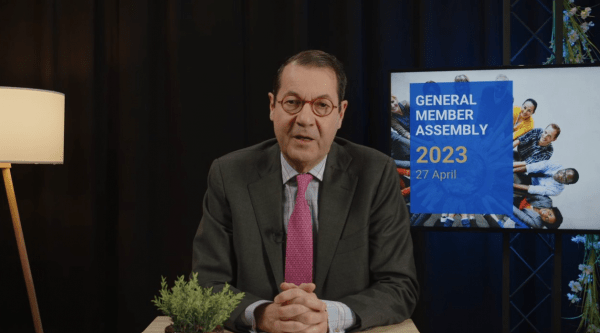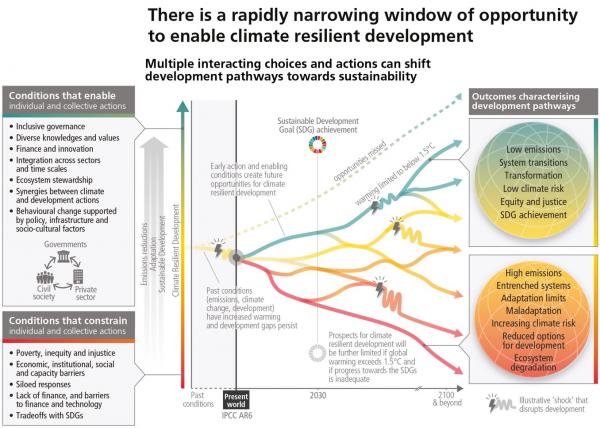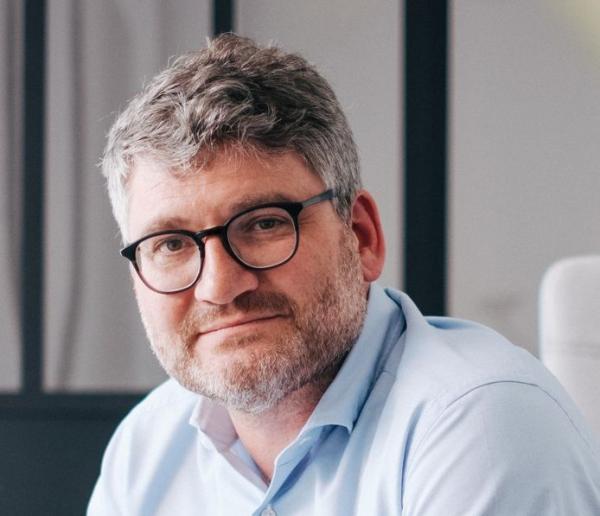Growth vs Degrowth: How do we grow from here?
The Annual General Meeting of our non-profit organisation was accompanied by an initial reflection on one of the most important societal challenges that our boards are facing. We want to disseminate these valuable ideas and viewpoints throughout our GUBERNA community with this report.
Cut the emissions
The environmental situation is serious, as CEO Sandra Gobert pointed out in her introduction: "The IPCC Synthesis Report is clear: global greenhouse gas emissions must be reduced immediately if the goals of the Paris Climate Agreement are to be met.”
At the same time, the report emphasises that there are still sufficient affordable opportunities in all sectors to reduce global emissions by 50 percent by 2030.
"In any case, this decade will look very different from the last because fossil fuel energy use must be reduced, and the green transition must accelerate."
Continuous debate?
The fierce debate between supporters of 'growth' and 'degrowth' hinges on the urgency caused by climate change. Yet the debate about growth versus degrowth itself is not new. In the seventies, it was linked to the constatation that there are limits to the planetary resources. It now intensifies in the current context of climate change and sustainability challenges. 2023 is the year in which the following question hits every single boardroom hard: "To what extent is our economic growth still compatible with environmental sustainability?”
Looking for arguments
GUBERNA put the debate on the agenda. We invited some experts for a short talk: Geert Noels, Bruno Colmant, Valérie Trouet, and Thibaut Georgin. Saartje Verbeke, Lifelong Learning Manager and expert in sustainable governance led the conversation. Mind you, the intention was not to organise a real debate between "growthers" and "degrowthers". Rather, we offered a succession of reflections and arguments on and beyond the topic.
Geert Noels
Geert Noels made a bold analysis of the global economy in his earlier book "Gigantism". He argued that the drive for growth and power of companies and organisations leads to a derailed economy that no longer serves people. In his most recent book "Climate Shock", he sets out to create a Belgian version of the iconic book "Drawdown" by US entrepreneur and environmental activist Paul Hawken. With a group of experts, he identified hundred concrete solutions for reducing greenhouse gas emissions to zero, worldwide, thus countering global warming.
Noels himself selected the twenty technologies with the greatest CO2 impact. Yes, twenty, because "There is no silver bullet solution: every solution will play a role." This would allow our country to save 67.1 million tonnes of CO2 emissions by 2030 and 127.1 million tonnes by 2050. Belgium would then be considered climate neutral. "We can meet the decarbonisation target without sacrificing prosperity or destroying plenty of jobs." His hopeful conclusion is that in Belgium we can still invest in opportunities to address climate issues without collectively impoverishing. Therefore, further economic growth should no longer be accompanied by growth in CO2 emissions. Generating more energy without additional CO2 can be done by using hydrogen, nuclear power, solar panels, or wind turbines.
Geert Noels stated that the debate between growth and degrowth was irrelevant and showed himself to be a true advocate of "regrowth" including the use of Cleantech. Sustainable economic growth without additional emissions is possible. He showed himself as a sharp opponent of the degrowth idea. "If you advoca

Bruno Colmant
In his short video intervention, Bruno Colmant expressed concerns about the need for a transition and the impact of the environmental challenge. Our moderate 'Rhineland' capitalism of the 1980s had to give way to a global market economy with consumerism gone mad. On the other hand, the limitations of nature or natural resources were never factored into economic thinking.
Externalities (the environment) and systemic risks are not taken into account in financial thinking about economics. A new reflection on finance and the environment is therefore needed. Besides labour and capital, natural resources are also essential factors that should appear in all accounting systems. If they do, companies with a negative environmental report can be 'penalised' and those with a positive report 'rewarded'. He thinks it is high time for a major political awareness on this matter: "We owe this to future generations"

Valerie Trouet
Valerie Trouet is a well-respected dendrochronologist who uses the rings in trees to study the climate over the past 2000 years. She recently became the Academic Director of the new Belgian Climate Center. One of its missions is to enable politicians and businesses to make more evidence-based decisions.
She showed us how climate change has influenced ecosystems and human systems. Based on her research she observed that the current climate changes are unique and far more extreme than ever before. The recent temperature rise is extraordinarily outsized. Nevertheless, she still strongly believes that we – humankind - can reach the climate goal of reduced warming: "we can do it if we want to".
The speed of global climate change is alarming, though. On the other hand, it is still up to us to decide how much warming we tolerate. We know the causes and consequences; we can still intervene. As a society, we can also demonstrate great resilience. But there is a rapidly narrowing window of opportunity to enable climate-resilient development.

No slide can better illustrate the importance of climate science in our transition to a green economy than this.
She further noted with pleasure that in recent years the business community has become truly convinced that things need to change urgently. (Image: UN’s IPCC Report)
Thibaut Georgin
At the end of the session, Thibaut Georgin did offer some sober reflections on the enormous task we are facing from the practical business point of view: "The definition of "growth" set aside we cannot say that we are growing beautifully.” Of course, he indicated that there is some positive economic evolution in terms of revenue, in terms of reducing the share of people in poverty in some countries. But still, many indicators are going in the wrong direction: the loss of biodiversity, global problems with water supply, heath waves across the globe, the rise of climate refugees. He insisted that we are still far from the goal to decouple growth from emission. “We are not on the right path and I don't see much progression.” He argued for the need to listen to science, also in the economic debate – because it is the economic debate that needs to be brought on boards: “It is not a political or ideological debate but it's just a fact that all companies need to work towards an ambitious purpose.”

Interventions from the public added some interesting food for thought. We heard concerns about the role and motivation of the young people in search of solutions, the time necessary for (cleantech) innovation and ‘regrowth’ while the climate clock is ticking, the pernicious academic influence of ‘degrowthers’, the delicate EU- US relations on the path towards a green economy, the urgent need for behavioral change in our mobility... But, alas time ran out and at six o clock sharp the General Meeting had to start...
Climate and sustainability is on the agenda of the boards of many companies, but as this discussion shows, there are many interfering interests and complexities to be talked about before it becomes commonplace in all boards. GUBERNA keeps the topic of sustainability high on the agenda in its different events and education programmes. Coming up, our GUBERNA Summer School on how to prepare your board for the future, and our GUBERNA Director’s day on Sustainability in the non-profit sector.
